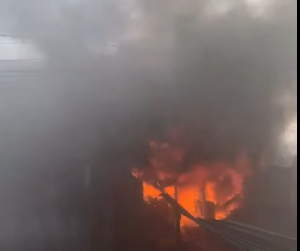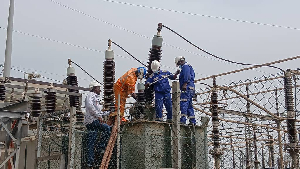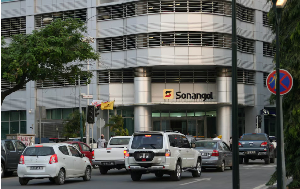Economists say that ‘there is no such thing as free lunch”. Every choice has an opportunity cost. Typical of an election year, you would hear infinitely many campaign promises. This year is much more interesting with Nana Akuffo-Addo not only making campaign promises, but coming across as the most generous Santa Claus we have even known in this country.
Sometime in the last quarter of 2005, there was a discussion on Uniiq FM about the need to build hostels for Kayaye. I wrote an article (which appeared in the Daily Graphic) in which I condemned the idea. Today, my position on that debate has not changed. Building hostels for Kayaye (free or not) is an economically unwise thing to do. And I seek to explain why in this article.
The Harris-Todaro model of rural-urban migration presents a compelling argument for why the menace is hard to “cure” in many developing countries. Rural-urban wage differentials would always incentivize rural folks to troop to urban areas even though they know they may end up not getting those “enviable” higher wages. In practice, they end up doing menial jobs like what our less privileged sisters do.
It is not just the wage differentials. The social amenities and economic opportunities in Accra and Kumasi would always appeal to rural folks to travel from Sandema and Tuna to these cities as long as the countryside lacks these amenities and opportunities. They get to the cities, become get really stranded and frustrated because they lack the skills required for any meaningful employment. In any case, the jobs are just not available. So they add to the pile of the rather existing burgeoning urban un- and underemployed.
If these rural young people, whose conditions are quite deplorable and pathetic in these cities, have economic opportunities and social amenities brought to them in their villages, their incentive to risk their lives to come to big cities would be very low. Note that, they understand and are conversant with the risks and uncertainty associated with coming to the cities to look for jobs. If people have electricity in Nakpanduri and have skills to earn them a decent living, why would they forego that only to come and sleep in the streets of Accra, carry people’s luggage, and suffer the way they do?
Building hostels for kakaye (assuming we actually have the wherewithal to build them and provide them for free to kayaye) is wrong for obvious reasons. We would end up making the trade more appealing and “glamorous” to more and more rural young girls. This would exacerbate the already precarious situation because we would see them deluge Accra and Kumasi (or wherever these supposed hostels are built).
The bottom-line is this: we have finite resources and infinite uses to which to put these resources. Yes, I know we have oil now. But there are better uses for the oil money. Hostels for Kayaye is a misplaced priority. It amounts to treating the symptoms of a disease instead of its cause(s).
We have structural problems in this country that need holistic long term solutions. For instance, you can’t keep the value of the cedi high by simply cancelling four zeros. Among the many causes, our high penchant for imports coupled with our low exports would always put tremendous pressure on the cedi. Bank of Ghana can intervene all they want in their attempt to stabilize the exchange rate. But they have limited reserves of foreign currency. When they run down on their reserves, what would happen to the cedi? Your guess is as good as mine. That is what it is. There is no politics about it. Ask any objective scholar with fair knowledge of finance and economics, and he would tell you the same story.
This idea of providing short term solutions to structurally long term problems, what is popularly called policy myopia in development parlance, has got to stop. Instead of promising to build free hostels for kayaye, how about a social intervention program that would equip them (the kayaye) with some form of skill set with which they would eschew the misery of kayaye trade? It does not have to be free secondary education, because the bulk of these girls hardly make it through junior high or even primary school anyway. A technical/vocational training program of some sort would do. Alternatively, go to the roots of the problem. Increase access to and improve quality of education from the very basic level, and make it progressively free at the high school level if we can (thanks to our infinitely humongous oil revenues!).
We have come of age as a country. We appreciate the issues. Let us not be gullible to promises of politicians especially promises that don’t make sense whatsoever. Let no politician take us for granted, because we know what is realistic and feasible, and what is not.
God bless our homeland Ghana!
Iddisah Sulemana
Opinions of Friday, 2 November 2012
Columnist: Sulemana, Iddisah














